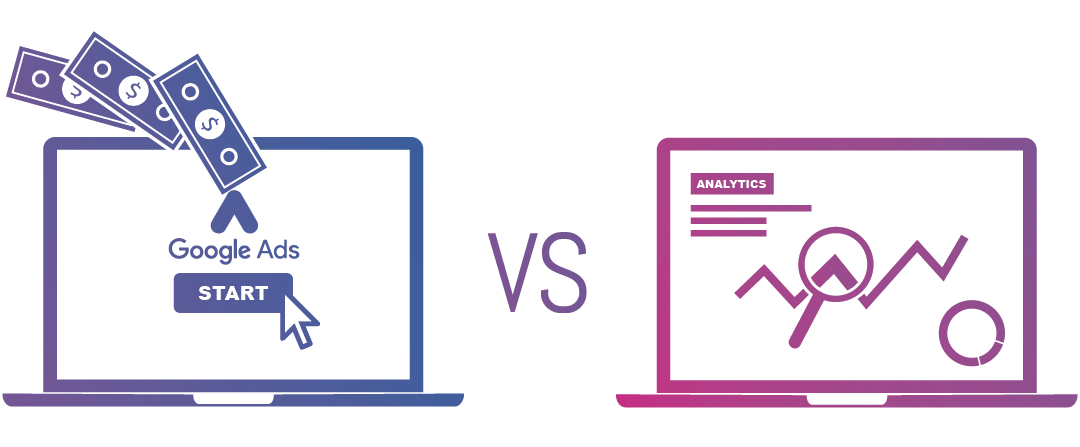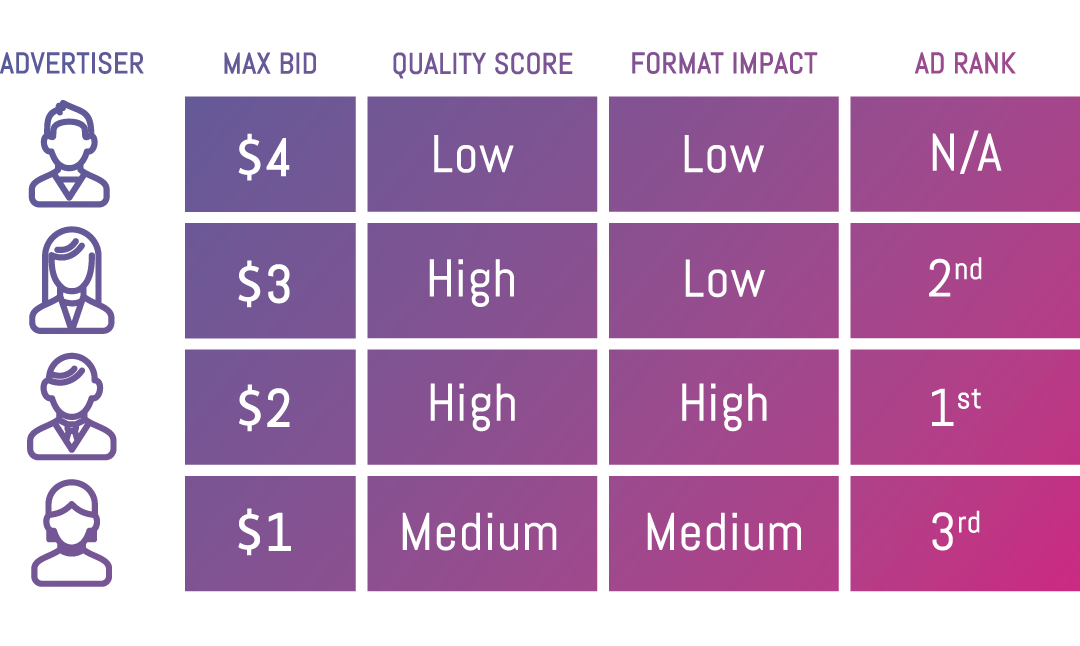SEM at a Glance
What is SEM?
SEM stands for “Search Engine Marketing”, the process of using paid advertising to increase a website’s visibility in search engine results. SEM is an integral factor in attracting new visitors to a website and growing an online presence, its biggest strength being that it puts your ads in front of consumers that are actively looking to purchase as they search.
SEM vs. SEO

With many different acronyms floating around, it can be hard to keep them straight. Fortunately, there’s a key difference that sets SEM and SEO apart.
SEM, or Search Engine Marketing, acts as a temporary FastPass to the front of the search engine line by using paid advertising efforts. Visibility is paid for, not earned.
SEO, being shorthand for “Search Engine Optimization”, doesn’t involve paying for anything. SEO uses practices that aim to generate organic search results based on how a website is created and the content housed within. Visibility is earned, not paid for.
Regardless of their differences, SEM and SEO should be working in tandem to help ensure your online marketing strategy is as good and effective as it can be.
Key Words

Much like SEO, SEM depends on keywords. In the case of SEM, however, keywords aren’t injected. They’re chosen.
Rather than placing keywords within content, the page title, and URL, SEM requires you to decide what keywords your targeted demographic will be searching when browsing for products or services. This is what allows your ads to appear alongside desired search results, effectively claiming a spot without having to earn it through SEO.
Unfortunately, this process is not as simple as it may sound. Just because you’ve decided on a target keyword(s) doesn’t mean that your ads will appear alongside those search results every time.
The Ad Auction

As for how the ads appear alongside desired search results, this can get confusing. There is an “ad auction” that takes place every single time someone searches for something. This isn’t an auction that anyone attends, instead, it is the ad platform (like Google Ads and Microsoft Advertising) deciding whose ad is most appropriate.
There are several factors that ad platforms take into account when deciding which ad wins the auction. The most important of these factors is the CPC bid (cost per click, the amount that you pay the ad platform each time your ad is clicked on), and the Quality Score (basically the quality and relevance of your ads and chosen keywords). For a better idea of how this works, check out Google’s explanation of their ad auction.
Your Online Marketing Strategy
Bear in mind, that this isn’t a comprehensive guide. There are a bunch more intricacies and strategies that go into the effective use of SEM. If you’re interested in reading further into SEM, give this a look.
We know this sounds like a lot, and that’s why we’re here to help. Your online marketing strategy is imperative to facilitate the growth of any business. The Alopex team is well versed in SEM, SEO, Google Ads, Analytics, and a plethora of other subjects. Our experts are here to help your business grow, all you need to do is reach out or give us a call.
For more helpful information, check out our other articles.